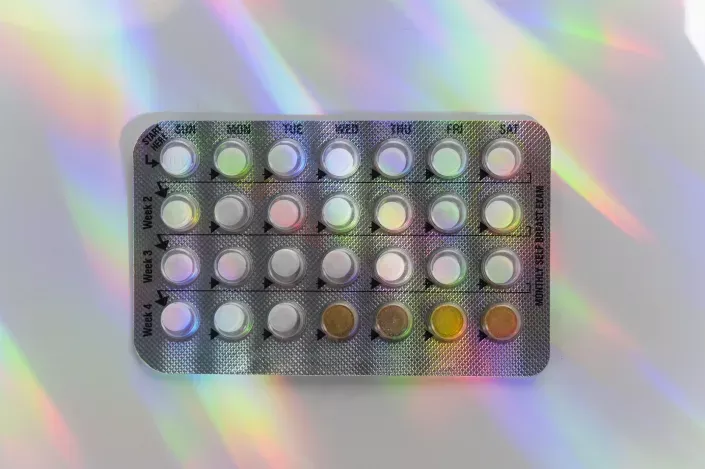Having a monthly period has long been considered the norm and a sign of good health and fertility. But if you're generally healthy and you're not trying to get pregnant, monthly menstruation isn't really necessary.
However, there are still a lot of misconceptions about intentionally skipping periods, which involves continuously using hormonal contraception to suppress menstruation for months or longer. “Some women think it can lead to poor health or infertility — but it won't,” Dr. Mary Jane Minkin, gynecologist and clinical professor of obstetrics, gynecology and reproductive sciences at Yale University School of Medicine.
Read Also: Blinken Arrives In Democratic Republic Of The Congo For Leg Two Of Africa Tour
Here’s what you need to know about intentionally skipping your period.
Do you need to have a monthly period?
In a nutshell, no. “You do not need to get a period every month,” Dr. Gil Weiss, an ob-gyn at the Association for Women’s Healthcare and assistant professor of clinical medicine in the department of obstetrics and gynecology at Northwestern Memorial Hospital, tells Yahoo Life. “If you do not want to get pregnant, a monthly period is not necessary.”
Weiss adds: “It is part of ‘urban legend’ that a monthly period is part of good health. In the past, your period was associated with fertility and having a regular period was viewed as good and healthy. [But] if you do not want to get pregnant, a monthly period is not necessary.”
Some women fear that not having a period means your uterine lining will continue to build up, but Minkin explains that’s not true. When you’re taking a combined hormonal contraceptive, such as birth control pills, as well as the hormonal ring and the patch, they contain estrogen and progestin, which is a synthetic progesterone. “They are designed to keep you from ovulating — so you won't get pregnant — and the estrogen also helps to keep women from getting what we call breakthrough bleeding,” Minkin explains. “The progestin also protects the lining of the uterus from growing too thick, so there is no need to shed any lining.”
What are the health benefits of skipping your period?
There are many benefits, say experts, “including less cramping and bleeding and avoiding PMS,” says Weiss. “Preventing anemia — by avoiding monthly bleeding — and ovarian cysts — since pills inhibit ovulation — are also important benefits.”
Minkin agrees, pointing out that some women bleed “significantly” from periods, and “if they are not bleeding they will help maintain their blood counts.”
Fewer hormonal mood swings is another upside. “It keeps you from getting ups and downs in your hormone levels,” says Minkin, “and most women do feel better on an even keel. Some are more sensitive than others to the ups and downs.”
For certain health conditions, such as endometriosis, menstrual suppression for three to four months at a time or even longer is recommended. Hormonal contraceptives can help alleviate the pain of endometriosis by suppressing menstruation and preventing the growth of endometrial tissue outside of the uterus, according to Endometriosis.org.
Another long-term benefit includes “reducing your chance of certain types of cancer like ovarian cancer,” says Weiss.
Regular monthly bleeding, on the other hand, doesn’t have any health benefits, according to the Mayo Clinic.
But beyond its health advantages, taking hormonal contraceptives continuously gives you greater control over when you’ll have your period, allowing you to skip it during important events, such as your wedding day or while on vacation.
Are there any risks to skipping your period?
There is little risk in skipping your period if your primary care physician says you’re a candidate for hormonal contraception, according to experts. “The most common side effect of skipping your period is breakthrough bleeding,” Weiss says, which is bleeding that comes at variable times during your cycle. “Not everyone gets breakthrough bleeding when they skip a period.”
If breakthrough bleeding does happen, Minkin suggests stopping the active pills or removing the ring or patch for a few days (and using another form of pregnancy protection in the meantime). “You'll likely get a bit of bleeding, it will stop, and you can resume your pills” or other hormonal birth control method, she says.
That said, some find it reassuring to get their periods every month. “Some women just like getting a period — and that's perfectly fine to do so!” says Minkin. “They seem to like that reassurance, mostly to prove to themselves that they aren't pregnant.”
Oral contraceptives, the ring and the patch are all 91% effective at preventing pregnancy, according to Planned Parenthood. But in the event that a hormonal birth control method fails, Weiss explains that “some women may not realize they are pregnant” if they’re skipping their period. If that’s a concern, taking regular pregnancy tests can provide some peace of mind.
It’s also worth mentioning that continuously using hormonal contraceptives to skip a period is different from a missed period that happens naturally. Pregnancy is a common reason for missed periods, but other culprits include stress or health conditions, such as polycystic ovary syndrome or thyroid problems, which warrant a doctor's attention.
Does intentionally skipping your period affect fertility in any way?
No, says Weiss. “Skipping your period does not impact your future fertility,” he says. “In fact, some evidence shows that taking continuous pills may help your fertility down the road by temporarily putting your ovaries to rest until they are needed.”
What's the easiest way to skip your period?
The easiest way to skip a period is to use some form of hormonal contraception continuously, says Weiss. For example, if you’re on the ring, that would mean skipping the ring-free week and instead putting in a new ring. Or if you’re taking oral contraceptives, that would mean continuing to take the active pills and skipping the placebo/sugar pills in the pack. “And if you want to get your period at another time, just stop your pills and you will likely get your period,” says Minkin.




